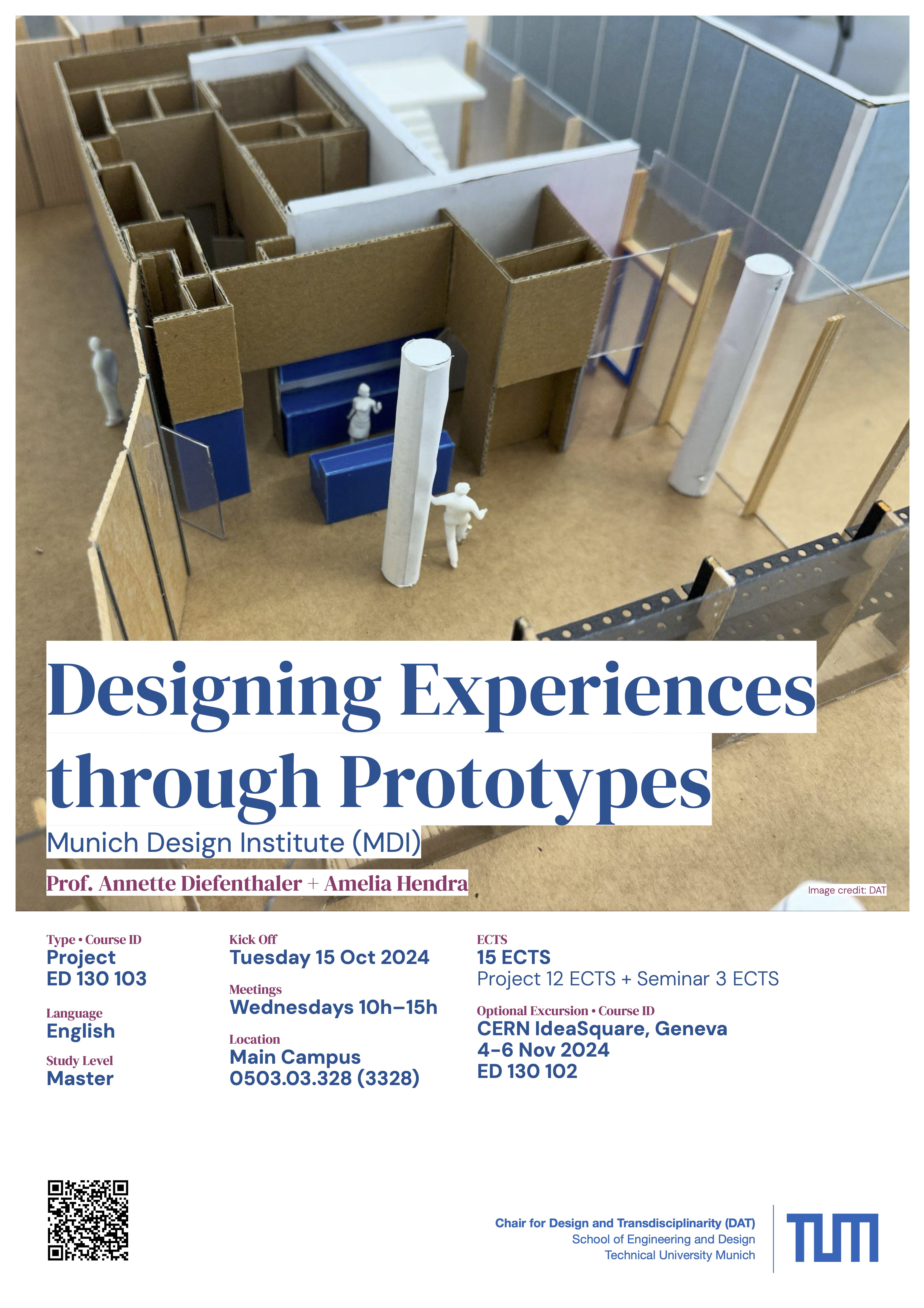- Dozent: Miriam Bird
- Dozent: Sidney Hribersek
- Dozent: Luise Kaufmann
TUM-Moodle
Suchergebnisse: 340
- Dozent: Miriam Bird
- Dozent: Daniel Ebsen
- Dozent: Sidney Hribersek
- Dozent: Luise Kaufmann
- Dozent: Miriam Bird
- Dozent: Behroz Sharifi
- Dozent: Jannis von Nitzsch
- Dozent: Miriam Bird
- Dozent: Daniel Ebsen
- Dozent: Luise Kaufmann
- Dozent: Jannis von Nitzsch
- Dozent: Jamel M'Hamdi
- Dozent: Max Pflitsch
- Dozent: Michael Stich
- Dozent: Jamel M'Hamdi
- Dozent: Max Pflitsch
- Dozent: Michael Stich
In this laboratory course students develop a mechatronic prosthesis prototype, which shall meet the requirements of the international Cybathlon competition. Students must demonstrate their ability to implement theory into practical applications in a team setting. The module grade of the Projektarbeit is determined by the final group prototype (80%) and the documentation (10-15 pages, 20%).
This laboratory course focuses on the development of an upper limb mechatronic intelligent prosthesis. Students learn how to perform hardware and software prototyping from scratch. Furthermore, they gain skills in modeling, control, experimental implementation and field testing of prosthesis devices. Starting from an existing prosthesis design (transradial, transhumeral), students will design a lightweight, wearable device that is intuitive to control. This includes modeling and the mechanical design using state-of-the-art 3D-printing technology as well as control, electronics development and application of AI-based algorithms.
Module Description: https://campus.tum.de/tumonline/WBMODHB.wbShowMHBReadOnly?pKnotenNr=1624242&pOrgNr=14188
- Dozent: Saeed Abdolshah
- Dozent: Anna Adamczyk
- Dozent: Sami Haddadin
- Dozent: Johannes Kühn
- Dozent: Juan Edmundo Pozo Fortunic
- Dozent: Johannes Ringwald
- Dozent: Alexander Tödtheide
Welcome to the Engineering Databases Course
*** Important Facts ***
- Attendance mode: completely and only in-person (at TUM campus)
- Being present in the classroom is mandatory
- Material: lectures + exercises mixed within each lecture
- Course capacity: maximum of 45 confirmed places
- Computer lab: N0199, here is a room finder link:
https://campus.tum.de/tumonline/co_loc_roomfinder.doRedirect?raumKey=7566
***Database access***
Option (1) : phpMyAdmin Server
Local server: https://mysql.cip.bgu.tum.de/DBadmin/
User: <your student number with leading zeroes>
Password: EngDB_WS2024
Change your password!
You need to be in the CIP pool or connected via eduVPN to get access.
Install the compatible version of eduVPN with your OS through this link: https://doku.lrz.de/display/PUBLIC/VPN+-+eduVPN
After installation, run the VPN and open the local server on your browser.
If you faced some problems, clear the history of the browser and open the page again.
Note that the local server will be recognised as an unsafe page. However, you need to proceed by clicking on the "advanced" button.
The local server has been tested on Microsoft Edge (windows) and Safari (macOS)
After opening the server, just enter your username and password.
Option (2) : MySQL Workbench software
1. Visit the official MySQL Workbench download page at:
https://dev.mysql.com/downloads/installer/
2. Select the appropriate version for your operating system (Windows, macOS, or Linux) and click the "Download" button.
3. Follow the on-screen instructions to download the installer.
4. Locate the downloaded installer and double-click on it to start the installation process.
5. Follow the installation wizard, accepting the default settings, and click "Next" or "Install" as prompted.
6. Search for "MySQL Workbench" in your computer's applications or programs.
7. Open MySQL Workbench.
8. In MySQL Workbench, click on "Database" in the top menu. Select "Connect to Database."
9. Set the ''Local instance MySQL'' as stored connection. Then Click "OK" to connect to the database.
***Additional Information***
If you encounter any issues during the installation process, please refer to the video tutorial available at the following link:
For students who cannot use their own laptops for any reason, you can continue working with the online phpMyAdmin online demo.
- Dozent: Andre Borrmann
- Dozent: Mohammad Reza Kolani
- Dozent: Mansour Mehranfar

https://campus.tum.de/tumonline/pl/ui/$ctx/wbLv.wbShowLVDetail?pStpSpNr=950804075
- Dozent: Annette Diefenthaler
- Dozent: Amelia Hendra
- Dozent: Tobias Löhe

Our current reality is shaped by complex challenges that require us to fundamentally rethink our relationship with the planet we live on. Approaches to solve these challenges often have to include changes in policy, which, for the purpose of this seminar, we define in its simplest terms according to Thomas Dye, 1972: "anything a government chooses to do or not to" But how are policies designed in reality? What happens when we think of policy design as a creative process? And how do we include the voices of nature as a "non-human stakeholder" in these processes?
In this module, you will embark on a learning experience beyond the confines of the classroom: Students from diverse disciplines are invited to an immersive journey into nature, design, and innovation, fostering an environment of creative thinking and interdisciplinary collaboration. Participants will engage in interactive experiences, nature walks, and prototyping sessions, joined by real-world practitioners to address tomorrow’s global challenges.
The course starts with a discussion-based session at TUM's main campus. Students are required to complete approximately 8 hours of reading of assigned materials in preparation for this gathering. During the session, a combination of impulses by the lecturers and potentially external guests together with conversations about the readings will create a shared understanding of the significance of public policies, the processes used to design them, as well as the opportunity to engage in public policy design as a creative act. A confirmed guest is Martin Waehlisch, who leads innovation at the UN Department of Political and Peacebuilding Affairs.
A few weeks later, (exact dates to be announced), participants will have the opportunity to travel to a retreat space at the Ammersee for a day-long immersive, hands-on workshop. The workshop will be joined by external guests who are policy makers or experinced in the space of imagining change at a large scale. Spending time in nature, participants will gather inspiration that, over the course of the day, will be translated into ideas for meaningful change.
The course culminates in students crafting policy one-pagers, empowering students to communicate complex ideas as concrete, impactful policy recommendations. This transformative experience is designed not only to inspire but to equip tomorrow's leaders with the tools to shape the future.
- Dozent: Annette Diefenthaler
- Dozent: Florian Egli
- Dozent: Amelia Hendra
- Dozent: Tobias Löhe
- Dozent: Regina Sipos
Zum Zugang zum Moodle-Kurs bitte in TUMonline für den Kurs registrieren.
Die Vorlesung ist eine Einführung in die Begriffe und Bereiche der Diskreten Mathematik für Informatiker. Sie gliedert sich in fünf Teilen:
1) Grundbegriffe der Mengen, Relationen und Funktionen:
- Mengen: Grundoperationen, Äquivalenzgesetze, KV-Diagramme,
Abzählbarkeit, Satz von Cantor
- Relationen: Join, Transitive Hülle, Relationale Algebra
- Funktionen: Grundeigenschaften, Komposition, Inverse
2) Grundlagen der Aussagenlogik und Logik erster Stufe:
- Aussagenlogik:
- Syntax und Semantik
- Wahrheitstabellen und Bezug zu KV-Diagramme
- Äquivalenzgesetze
- KNF, DNF, Normalisierungsverfahren, Erfüllbarkeitsäquivalenz
- SAT-Verfahren: DPLL, Resolution. Korrektheitsnachweis
- Modellierung mit Aussagenlogik
- Prädikatenlogik
- Syntax und Semantik
- Äquivalenzgesetze
- Modellierung mit Prädikatenlogik
3) Grundlagen der Kombinatorik:
- Zählprinzipien
- Ziehung von Bällen aus Urnen: Variationen, Permutationen, Kombinationen.
- Binomialkoeffizienten: Symmetrie, Identitäten von Pascal und Vandermonde
- Verteilungsprobleme
- Stirling-Zahlen der ersten und zweiten Art
- Geordnete und ungeordnete Zahlpartitionen
- Anwendung Lastverteilung
4) Grundlagen der Graphentheorie:
- Grunddefinitionen
- Bäume
- Eulerkreise: Satz von Euler. Hamiltonkreise: Sätze von Dirac und Ore
- Planargraphen: Eulersche Polyederformel, Satz von Kuratowski
- Matchings: Heiratssatz, augmentierende Pfade
- Matchings mit Präferenzen: Satz von Gale-Shapley
5) Algebraische Grundlagen:
- Grunddefinitionen: Algebra, Gruppe, Ring, Körper
- Gruppen
- Ordnung: Satz von Lagrange, Erzeuger, Gruppenexponent
- Zyklische Gruppen
- Zahlentheoretische Grundlagen: Größter gemeinsamer Teiler,
Erweiterter euklidischer Algorithmus, Eulersche phi-Funktion
- Multiplikative Restklassengruppen
- RSA
- Dozent: Felix Brandt
- Dozent: Daniel Cremers
- Dozent: Maolin Gao
- Dozent: Florian Hofherr
- Dozent: Michael Luttenberger
- Dozent: Christian Stricker
Lecture
The lecture takes place online.
Throughout the course we are referring to the following books:
- [TS17] - Andrew S. Tanenbaum and Maarten van Steen. Distributed Systems. 3rd Edition (2017).
- [CD11+] - George Coulouris, Jean Dollimore, Tim Kindberg and Gordon Blair. Distributed Systems: Concepts and Design. 5th edition. Prentice Hall (2011)
Relevant chapters and additional literature will be announced separately.
- Dozent: Christoph Doblander
- Dozent: Emmanouil Giortamis
- Dozent: Aikaterini Intzevidou
- Dozent: Hans-Arno Jacobsen
- Dozent: Ruben Mayer
- Dozent: Pezhman Nasirifard
- Dozent: Jawad Tahir
- Dozent: Evgeny Volynsky
- Dozent: Christian Widmer
Lecture
The lecture takes place online.
Throughout the course we are referring to the following books:
- [TS17] - Andrew S. Tanenbaum and Maarten van Steen. Distributed Systems. 3rd Edition (2017).
- [CD11+] - George Coulouris, Jean Dollimore, Tim Kindberg and Gordon Blair. Distributed Systems: Concepts and Design. 5th edition. Prentice Hall (2011)
Relevant chapters and additional literature will be announced separately.
- Dozent: Pramod Bhatotia
- Dozent: Emmanouil Giortamis
- Dozent: Hans-Arno Jacobsen
- Dozent: Ruben Mayer
- Dozent: Pezhman Nasirifard
- Dozent: Evgeny Volynsky
- Dozent: Philipp Lergetporer
- Dozent: Diego Adrian Yerovi Ona
- Dozent: Philipp Lergetporer
- Dozent: Diego Adrian Yerovi Ona
- Dozent: Helena Baier
- Dozent: Philipp Lergetporer
- Dozent: Helena Baier
- Dozent: Philipp Lergetporer
- Dozent: Helena Baier
- Dozent: Philipp Lergetporer
- Dozent: Sebastian Goerg
- Dozent: Martin Speckner
- Dozent: Sebastian Goerg
- Dozent: Martin Speckner
- Dozent: Valentina Stöhr
- Dozent: Sebastian Goerg
- Dozent: Martin Speckner
- Dozent: Helena Baier
- Dozent: Philipp Lergetporer
- Dozent: Christoph Drobner
- Dozent: Sebastian Goerg
- Dozent: Christoph Drobner
- Dozent: Sebastian Goerg
- Dozent: Martin Speckner
- Dozent: Christoph Drobner
- Dozent: Sebastian Goerg
- Dozent: Martin Speckner
- Dozent: Valentina Stöhr
- Dozent: Sebastian Goerg
- Dozent: Martin Speckner
- Dozent: Christoph Drobner
- Dozent: Sebastian Goerg
- Dozent: Martin Speckner
Campus Munich:
- WI000023 (German language): Volkswirtschaftslehre II / Makroökonomie (Lecture and exercises)
WI000023_E (English language): Economics II / Macroeconomics (Lecture and exercises)
Campus Straubing:
- WI000023, CS0067 (English language): Economics II
/ Macroeconomics (Lecture and exercises)
- CS0067 (English language): Economics II / Macroeconomics (Lecture and exercises)
Campus Heilbronn:
- WIHN0023_E (English language): Economics II / Macroeconomics (Lecture and exercises)
- Dozent: Annette Becker
- Dozent: Christoph Drobner
- Dozent: Sebastian Goerg
- Dozent: Julian Hackinger
- Dozent: Hanna Hottenrott
- Dozent: Florian Inderst
- Dozent: Anwesha Mukherjee
- Dozent: Konstantin Römer
Campus Munich:
- WI000023 (German language): Volkswirtschaftslehre II / Makroökonomie (Lecture and exercises)
-
WI000023_E (English language): Economics II / Macroeconomics (Lecture and exercises
Campus Straubing:
- WI000023, CS0067 (English language): Economics II
/ Macroeconomics (Lecture and exercises)
- CS0067 (English language): Economics II / Macroeconomics (Lecture and exercises)
- Dozent: Annette Becker
- Dozent: Hanna Brosch
- Dozent: Julian Peter Greimel
- Dozent: Christoph Gschnaidtner
- Dozent: Julian Hackinger
- Dozent: Silke Heindl
- Dozent: Georg Hoch
- Dozent: Hanna Hottenrott
- Dozent: Florian Inderst
- Dozent: Ljuba Kaucher
- Dozent: Anwesha Mukherjee
- Dozent: Andreas Pondorfer
- Dozent: Jesper Riedler
- Dozent: Konstantin Römer
- Dozent: Kaan Uctum
- Dozent: Gabriel Vollert
- Dozent: Jonnathan Santiago Berrezueta Guzman
- Dozent: Stefan Wagner
- Dozent: Jonnathan Santiago Berrezueta Guzman
- Dozent: Stephan Krusche
- Dozent: Richa Bharti
- Dozent: Dominik Grimm
- Dozent: Dominik Grimm
- Dozent: Florian Haselbeck
- Dozent: Maura John
- Dozent: Josepha Koch
- Dozent: Carl Jasper Schönermark
- Dozent: Nicole Weideneder
- Dozent: Frederika Kaspers
- Dozent: Josepha Koch
- Dozent: Leonie Reichardt
- Dozent: Carl Jasper Schönermark
- Dozent: Nicole Weideneder
- Dozent: Frederika Kaspers
- Dozent: Josepha Koch
- Dozent: Leonie Reichardt
- Dozent: Carl Jasper Schönermark
- Dozent: Sarah Schulitz
- Dozent: Frederika Kaspers
- Dozent: Josepha Koch
- Dozent: Carl Jasper Schönermark
- Dozent: Nicole Weideneder
- Dozent: Josepha Koch
- Dozent: Nicole Weideneder
- Dozent: Stefan Wagner
